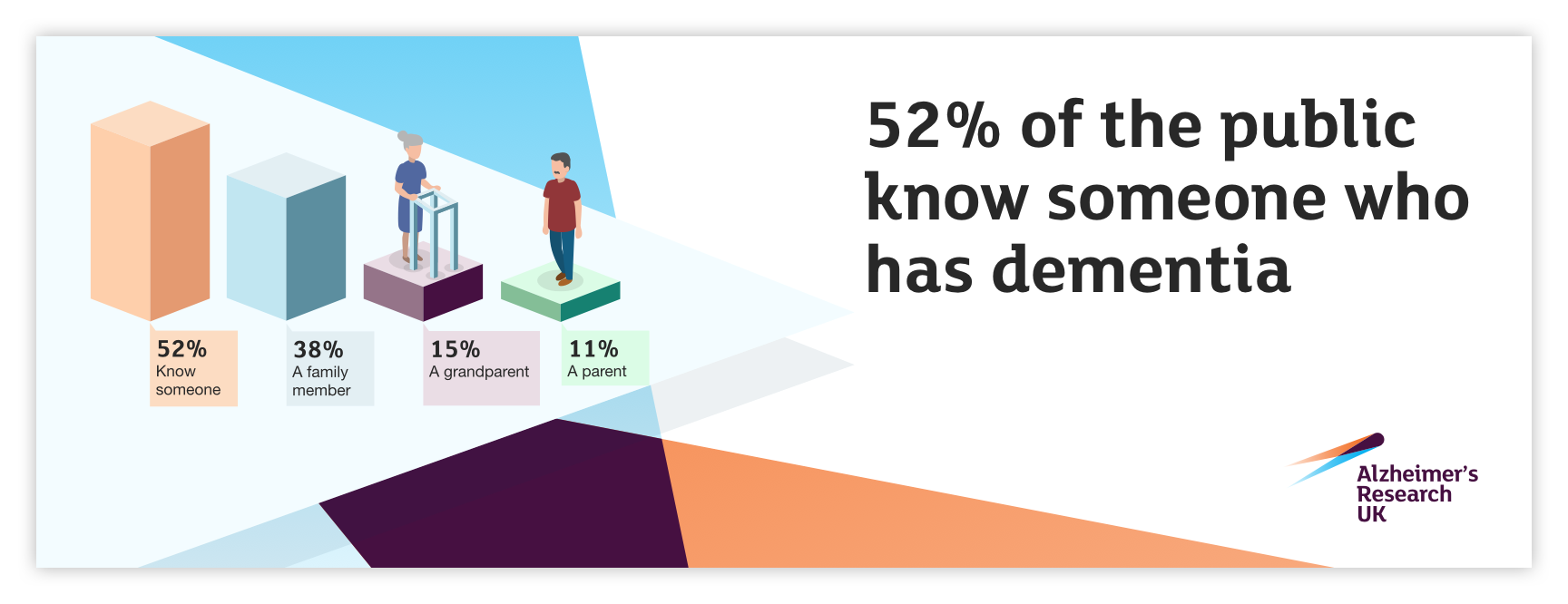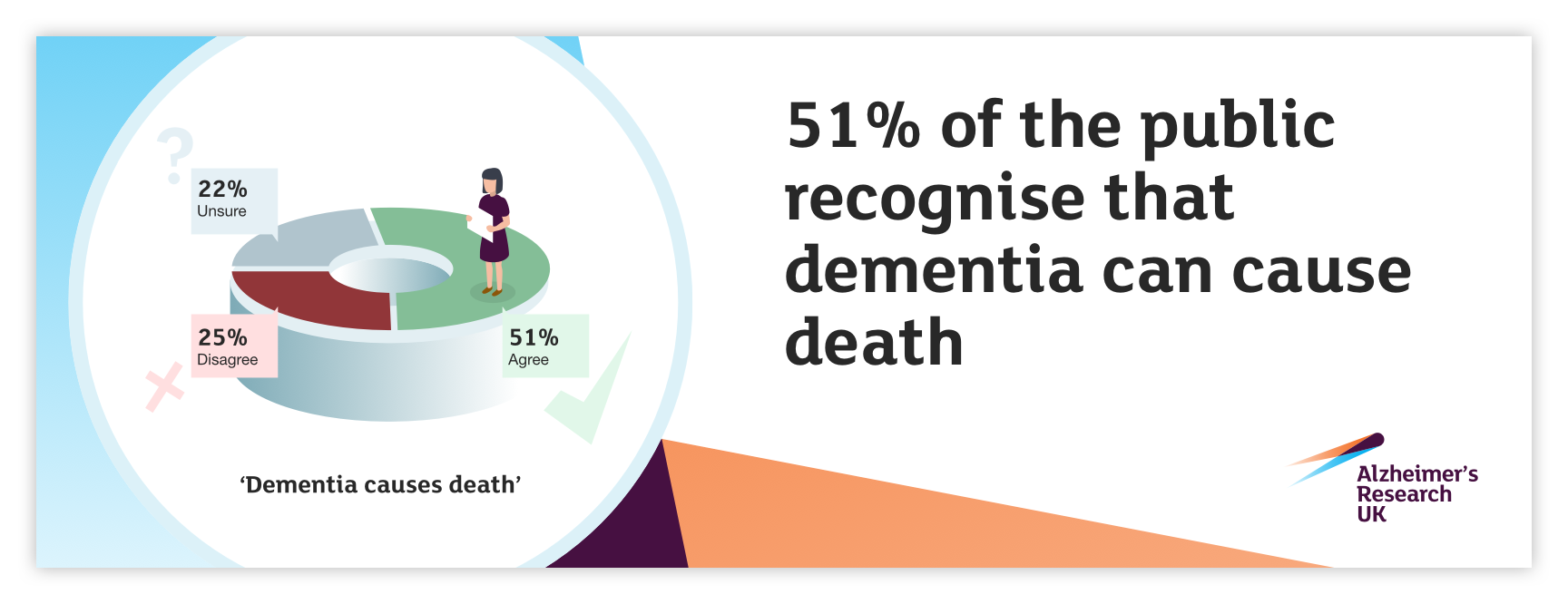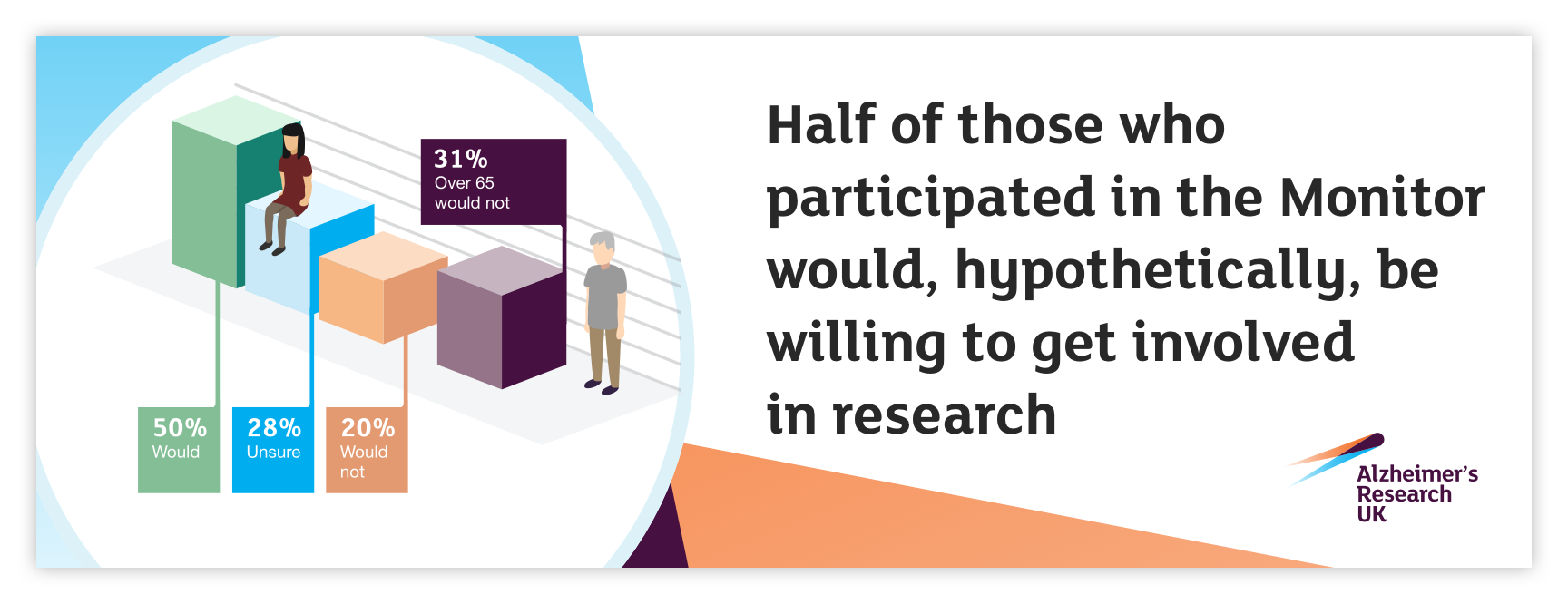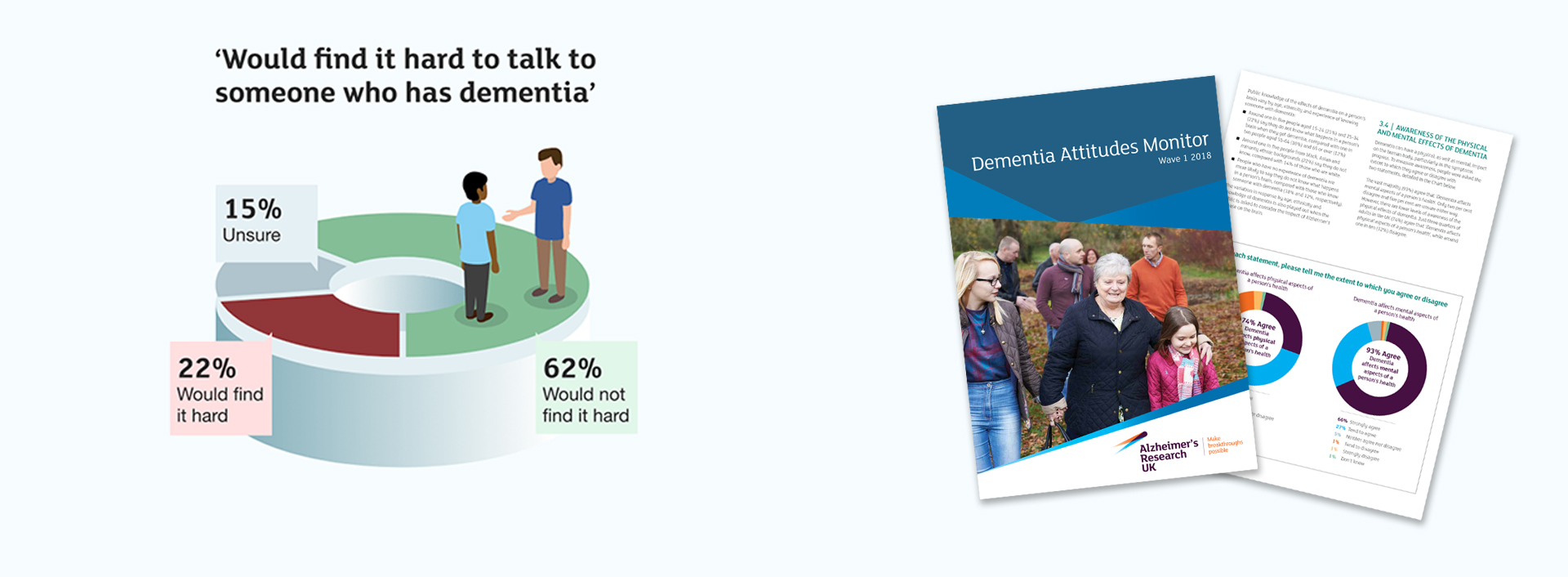The Monitor, based on a survey of 2,361 adults across the UK, has revealed that more than half of the UK population (52%) has been affected by dementia, with a family member or someone else close to them diagnosed with the condition.

52% of the public know someone who has dementia #DementiaAttitudes [3]CLICK TO TWEET [3]– Despite awareness of dementia increasing, one in five UK adults still incorrectly believes that it is an inevitable part of getting older and just half of the public recognise that dementia can cause death.
This shortfall in understanding of the physical diseases that cause dementia means that people may be less likely to take steps to maintain their own brain health, to seek a diagnosis or to support research that has the power to transform lives.

51% of the public recognise that dementia can cause death #DementiaAttitudes [4] CLICK TO TWEET [4] – Wave 1 of the Dementia Attitudes Monitor has identified major groups within society that we must work hard to engage, with younger adults, people from black, Asian and minority ethnic backgrounds, and those with no experience of dementia less likely to realise that they can reduce their risk of developing dementia and more likely to say that they don’t know what happens in a person’s brain when they get dementia.
Positively, it has also revealed that people in the UK are open to learning more about their individual risk of developing dementia (73% say they would want to be told in midlife about their personal risk of developing dementia later in life), as well as being highly supportive of research into ways to prevent, and one day, cure dementia.
It has also shown that more must be done to engage people with how they can personally support research efforts. Half of those who participated in the Monitor would, hypothetically, be willing to get involved in medical research for dementia, 20% would not and a further 28% are unsure. We know that participation in research through programmes such as Join Dementia Research [5] is vital for research efforts to continue at pace so there is a real opportunity to engage more people with the positive personal contribution they can make to research.

Half of those who participated in the Monitor would, hypothetically, be willing to be involved in research #DementiaAttitudes [6] CLICK TO TWEET [6] – The full Wave 1 report gives a detailed picture of public attitudes towards dementia, the unhelpful misconceptions that persist, and the opportunities that we and others must seize as we work towards a world free from the fear, harm and heartbreak of dementia.
